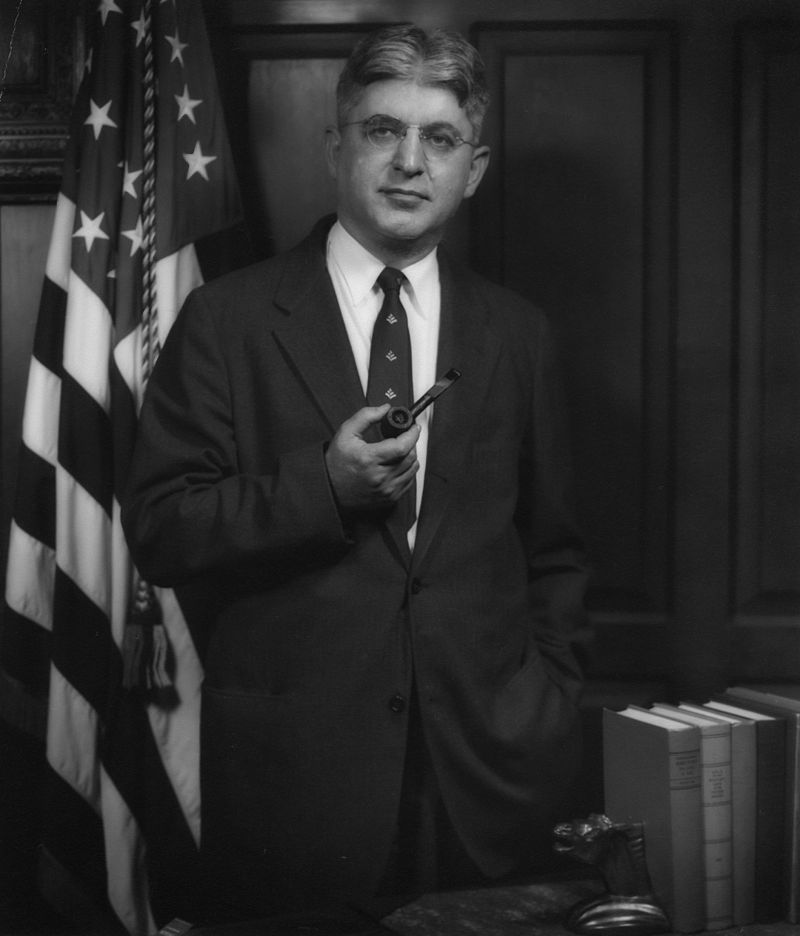
Arthur Burns
Arthur Burns was an American economist who served as the Chairman of the Federal Reserve from 1970 to 1978. Appointed by President Richard Nixon, Burns faced significant challenges during his tenure, particularly regarding inflation and the economic pressures of the 1970s. His approach often aligned with presidential interests, which led to criticism as inflation surged during his time in office. Burns is often cited as a cautionary example of the potential pitfalls of compromising the independence of central banking.
Born on Aug 27, 1904 (121 years old)
Global Media Ratings
Countries Mentioned
| Country | Mentions | Sentiment | Dominance | + Persistence | x Population | = Reach | x GDP (millions) | = Power |
|---|---|---|---|---|---|---|---|---|
| United Kingdom | 1 | 4.00 | 0.05% | +0% | 67,886,011 | 35,413 | $2,700,000 | 1,408$ |
| Switzerland | 1 | 4.00 | 0.09% | +0% | 8,654,622 | 8,088 | $700,000 | 654$ |
| Indonesia | 1 | 5.00 | 0.14% | +0% | 273,523,615 | 377,795 | $1,119,000 | 1,546$ |
| Totals | 3 | 350,064,248 | 421,296 | $4,519,000 | 3,608$ |
Interactive World Map
Each country's color is based on "Mentions" from the table above.
Recent Mentions
 Indonesia:
Arthur Burns was the Federal Reserve Governor during Nixon's presidency who faced pressure to reduce interest rates.
5
Indonesia:
Arthur Burns was the Federal Reserve Governor during Nixon's presidency who faced pressure to reduce interest rates.
5
 Switzerland:
Arthur Burns was the Fed Chairman who succumbed to pressure from President Nixon.
4
Switzerland:
Arthur Burns was the Fed Chairman who succumbed to pressure from President Nixon.
4
 United Kingdom:
Arthur Burns was pressured by Richard Nixon to ease monetary policy to help smooth his 1972 election campaign.
4
United Kingdom:
Arthur Burns was pressured by Richard Nixon to ease monetary policy to help smooth his 1972 election campaign.
4
 Switzerland:
Arthur Burns is portrayed as a tragic figure in economic history, known for his role as the head of the Federal Reserve during a time of high inflation and economic stagnation.
3
Switzerland:
Arthur Burns is portrayed as a tragic figure in economic history, known for his role as the head of the Federal Reserve during a time of high inflation and economic stagnation.
3
 Switzerland:
Arthur Burns is mentioned as a Fed chair who lowered interest rates at the behest of President Nixon.
4
Switzerland:
Arthur Burns is mentioned as a Fed chair who lowered interest rates at the behest of President Nixon.
4
 Switzerland:
Arthur Burns was a former Fed chairman whose decisions led to high inflation due to yielding to political pressure.
4
Switzerland:
Arthur Burns was a former Fed chairman whose decisions led to high inflation due to yielding to political pressure.
4
 France:
Arthur Burns is remembered as one of the worst presidents of the Federal Reserve.
2
France:
Arthur Burns is remembered as one of the worst presidents of the Federal Reserve.
2
 Liechtenstein:
Arthur Burns was pressured by Nixon to reduce interest rates before the 1972 presidential election.
4
Liechtenstein:
Arthur Burns was pressured by Nixon to reduce interest rates before the 1972 presidential election.
4
 Spain:
Arthur Burns is referenced as a historical figure whose actions under Nixon are compared to current concerns about the Federal Reserve's independence.
5
Spain:
Arthur Burns is referenced as a historical figure whose actions under Nixon are compared to current concerns about the Federal Reserve's independence.
5
 Italy:
Arthur Burns was pressured by Nixon to keep interest rates low to aid in his re-election efforts.
5
Italy:
Arthur Burns was pressured by Nixon to keep interest rates low to aid in his re-election efforts.
5
